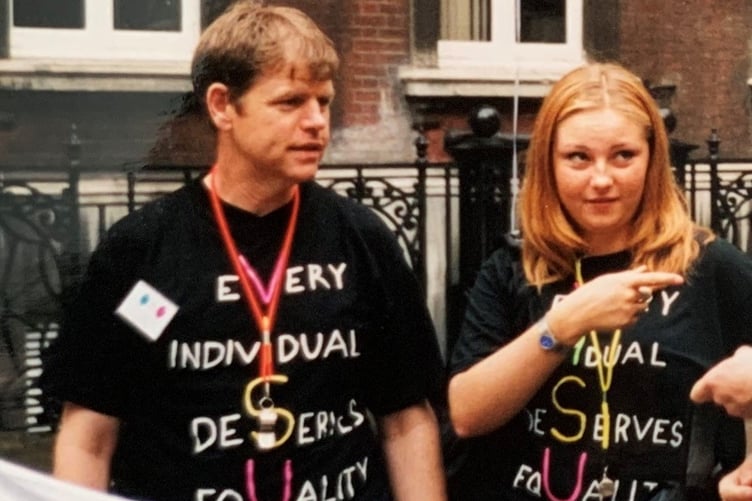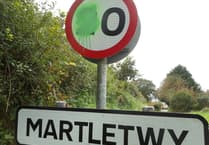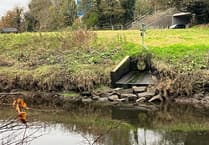A new RNID report published on April 24 exposes NHS Wales' systemic failures affecting over 300,000 deaf and hearing loss sufferers, urging for immediate government intervention.
Health services like the NHS are required, by law, to offer extra support if people with hearing loss struggle when accessing services. For example, being provided with an accessible alternative to the telephone to be able to book appointments or receive test results; or a communication support professional, such as a qualified British Sign Language (BSL) interpreter to ensure they can understand appointments and procedures.
Despite these legal requirements, the new report, ‘Still ignored: the fight for accessible healthcare’, reveals more than seven out of 10 (73%) deaf people and people with hearing loss in Wales have never been asked about their information and communication needs within a healthcare setting – something that all healthcare providers should offer as a patient’s legal right under the Equality Act. Guidance for how NHS Wales staff should meet the need of patients was introduced more than a decade ago in 2013, in the All Wales Standards for Accessible Communication and Information for people with Sensory Loss.
Deaf people and people with hearing loss in Wales are facing barriers at every stage of trying to access healthcare. One in three (30%) say they cannot contact their GP in a way they can access (e.g. by using an alternative to a telephone booking system).
Further barriers include issues with being called to appointments from the waiting room, which affect two out of three people (64%), through to almost half struggling to communicate with NHS staff when meeting to discuss symptoms or a problem (42%).
More than a third (38%) of people say they have left NHS appointments having not fully understood the information that have been given about their health. A similar number (37%) say they leave not having a clear understanding of the outcome and next steps of their appointments.
Concerningly, one in four patients (25%) who are deaf or have hearing loss say they have been denied the information and communication support they need. The impact of NHS Wales failing to provide this support means that more than half (56%) have had to rely on either a partner, children, family or friends to interpret or relay information for them at an appointment.
Such serious shortcomings put patients at risk, as most people will not be qualified to convey complex medical information and make sure it has been fully understood. The situation also denies people their right to privacy and dignity in their own healthcare.
Survey findings within the report show the broader impact that a lack of communication support can have:
– Almost one in 10 (8%) said they have even avoided calling an ambulance or attending A&E
– Almost one in five (18%) said a health condition was made worse due to inaccessible communication
– 11% feel their health was put at risk
The report demonstrates a complete failure of NHS Wales services to provide an equal quality of care for deaf patients and patients with hearing loss, going against the legal standards patients should expect.
Report findings show NHS Wales staff understanding of the processes and standards they are required to meet, is poor: only just over half (57%) know how to record a patients’ communication needs, and less than half (48%) know how to add a flag to a patient’s online record to make others aware of a patient’s communication needs, whereas nearly two thirds (62%) say they know how to book communication support for a patient, such as a BSL interpreter. Worryingly, only 17% of NHS staff feel they can always meet the information and communication needs of patients who are deaf or have hearing loss.
Dr Natasha Wilcock is a deaf doctor who works in palliative care. She shares her experiences:
“Legally, professionally and ethically, deaf insight training should be compulsory for all doctors. Right now, the experiences of deaf people and people with hearing loss are shocking. I have met patients who have been referred to palliative care services who have not understood that they will no longer be receiving cancer treatment – they haven’t understood that they are dying.”

Kate Boddy, originally from Wales, is the child of a deaf adult (CODA) and was required to act as an interpreter for her father, Richard Boddy, when he was diagnosed with cancer in 2022, before sadly passing away, aged just 70 years old, in November 2023.
Kate says: “Dad was diagnosed with cancer in 2022 and passed away November 23, 2023. He was just 70 years old. You always know from being within the deaf community how many barriers there are, but when you go through something so big as having a terminal illness, it really does bring to light how little access there is out there for a deaf person.
“If you need to learn about health conditions, there's nothing out there for deaf people. If you try to go online to find information, it’s very rarely in BSL which means there’s a dependency on family to translate that information.
“When it came to Dad, he didn't want to ask because it would mean that every conversation we had was about his illness, and it’s not really fair.
“I had to suppress every emotion to be able to interpret and that affected me. Even though we knew Dad was going to pass away, I don't feel like I said goodbye to him.”
Polly Winn, External Affairs Manager (Wales) at RNID, says: “The awful reality is that far too many deaf people and people with hearing loss are being failed by NHS Wales. It is not acceptable for individuals to be left not understanding serious, and even terminal, diagnoses, or having to share deeply personal and private information with family members because no communication support is being provided.
“NHS Wales is systematically discriminating against people who are deaf or have hearing loss: it’s a national scandal. Lives are being put at risk because of communication barriers, delays and out of date systems in need of a radical overhaul.
“Everyone deserves equal access to healthcare - it is a human right. It is about time deaf people and people with hearing loss are given more access and control over their physical and mental healthcare.”
“It is essential that the Welsh Government urgently addresses these issues, make staff training mandatory and overhaul current NHS Wales systems, so that everyone can access their own health information in a way that makes sense to them.”
RNID is calling for the following major changes to ensure the NHS Wales meets the needs of deaf people and those with hearing loss:
Welsh Government must publicly restate its commitment to strengthen and enforce the All Wales Standards and other legislation that underpins people’s right to accessible healthcare, and publish a clear timeframe for implementation,.
Welsh Government must ensure that new structures to oversee implementation of the All Wales Standards are robust and will effectively report progress, or flag issues for urgent action so unequal access to healthcare does not continue to go unnoticed.
Training in deaf awareness and how to meet patient communication needs should be mandatory for NHS Wales staff.
Finally, the report suggests that people with lived experience of communication needs should be at the heart of plans for change.




